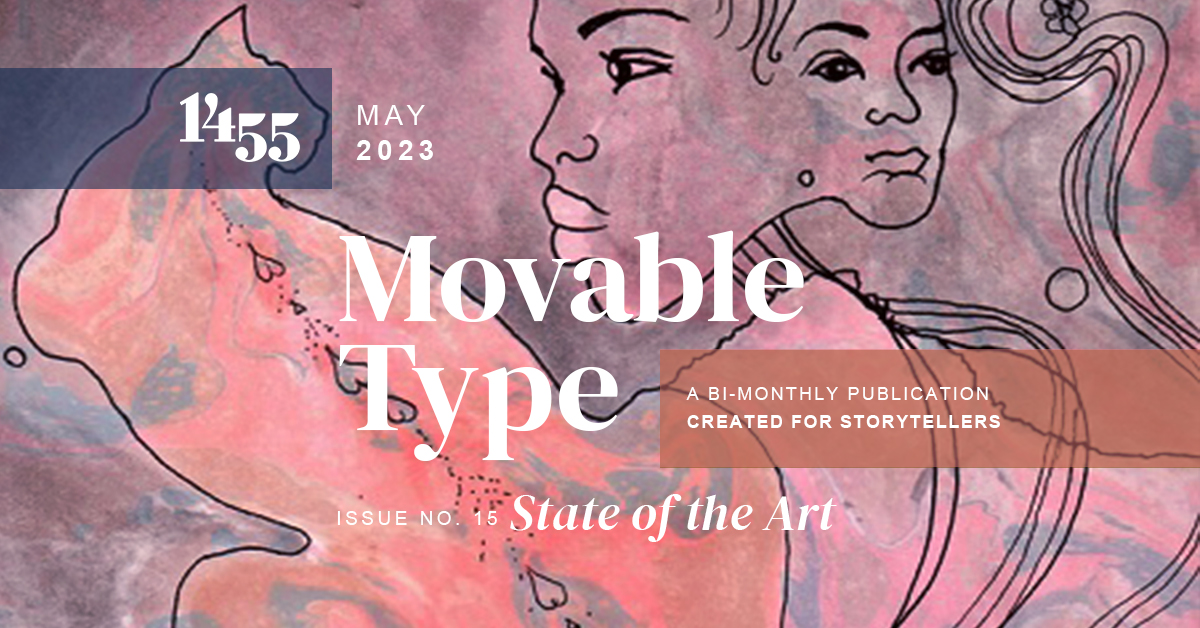Lisken Van Pelt Dus
Poems
Naming the Beast
Name the beast: a gash,
a pair of disembodied eyes,
a river broken. Ignore the dark country
of its terrible origins.
I try –
no go. A name contains a history.
Fear is a danger lying in wait, says
nothing, silence massing. Shame
covers itself in its own blood.
The most important question
isn’t why but what, you insist,
but when I look into the darkness
to name it
you tell me to turn forward:
Living is rightfully
concerned with the present.
Yes. But the horizon
is all around us.
Panic
lives in caves that speak
to lonely people, on mountains
with too vast a sky.
Failure arranges paving stones
to trip me.
Why
is the instrument of what,
dwells in the same lair.
The beast scored me.
Excavation
Twenty-four thousand years ago the brains,
guts, muscles, and reproductive systems
of who knows how many bdelloid rotifers
(bdelloid, from Greek: leech;
rotifer, Latin: wheel-bearer) froze solid,
and they have lived in cryptobiosis
(concealed or secret mode of life) ever since,
until scientists dug them up
from under eleven feet of permafrost
in northeastern Siberia (a name that may
or may not derive from a Tatar word
for sleeping land), and when thawed
they came back to life and promptly
reproduced – in their asexual way,
parthenogenesis (virgin birth), which would make them
such an outlier in evolutionary biology
that they have been called “scandalous,”
which is funny because it’s usually sex
that attracts moral opprobrium –
and the scientists can only conclude
that they “now have more questions
than answers,” which is ever the case anyway,
despite science coming from Latin knowledge,
and they are, besides, dealing with creatures
whose subkingdom evolved a dozen epochs
before anything resembling humans
began thinking, bleeding, sleeping,
procreating, keeping secrets, judging,
or presuming (from Proto-Indo-European:
to take up from under) to know anything at all.
When the Fireflies
Call Your Name
When you hear your name being called
from out of the middle of what you know
to be silence, go ahead and listen.
Hear the words beyond words humming
in the vibrations of this particular assembly.
Hear your name intoned as if you are dead,
mourning become a kind of mantra,
sad but celebratory, a purring, silky thing
like a satisfied cat. It doesn’t matter
if what you hear lacks translatability.
That’s what makes it mourning in the first place.
Though we behave as if reality
were within easy reach, we know
we perceive only a fraction of what’s there.
The stars have conspired to be fireflies this evening,
have divested themselves of scale
to enter your night. Why not?
For these few hours, forget distance.
If the stars can fall to earth and dance
above the daisies in the meadow
just when you are there to watch them,
you can do no less in return
than travel willingly through the darkness
and follow wherever the voice leads.
Letters from the New World
The fat woodchuck who ambled across our lawn
probably didn’t remember eating our cosseted flowers
just as they were about to bloom or
the screams of its cousin shot imprecisely
with a bow before you decided 22-shorts
would be okay, city limits be damned,
and I think: a bullet in the gut’s not the same
as the bullet shot, the woodchuck
understood nothing but the crack
of thunder from a casement window, not
you, not your words, your world –
the way relatives in sixteenth century Spain
read letters from the New World, unable
to fathom living in a city that floated on water or
being thought a god whose unintelligible name
is sung from pyramids or carved
into the haft of sacrificial blades.
Keeping all knives sharp is still
a ritual some people care about,
my father among them, though you insist
he does it wrong, and I concede since it’s you
after all who has cut up animals before
they were roasted, who’s known since childhood
the taste of metal lingering from bullets
while my family armed itself against anemia
with creamed spinach or, with luck,
a Snickers bar savored later in the dark
as Michelle, ma belle taught me French
and the discourse of lust, and my deepened
blood roared like the trains passing now under
our Osaka hotel window where we have flown
across an ocean, with only each other familiar, even
your penknife confiscated, not even knives at table.
You say that since you don’t understand the language,
you don’t feel responsible here. You like that,
you tell me, it’s a relief, and I say, yes, I understand.
There’s nowhere to stand in our tiny room so we kneel
on the bed and look out at train after train – endless
incomprehensible lives carried on iron tracks.
Edmonia Lewis Carves Hagar
If in the course of chiseling
I gouge her eye, shatter her nose –
what do I do?
Hagar knows about survival
as well as I –
stony silence,
injustice of expulsion
for sins that were not ours.
Metamorphic rock like this
understands resistance, too,
inhabits hardness – its own
and the battering –
in the beginning
it was pearls and snails
ground to slow limestone,
crystallized only
under pressure, heat
birthing marble.
Hagar founded
a race of kings.
I rasp her hair back,
tilt her chin up,
chisel anew.

Lisken Van Pelt Dus
Lisken Van Pelt Dus teaches languages, writing, and martial arts in western Massachusetts. Her poetry can be found in many journals, including most recently Sand Hills Literary Magazine, Beltway Poetry Quarterly, Book of Matches, Split Rock Review, and the Ekphrastic Review, and in anthologies such as the Crafty Poet Anthology Series, as well as in her book What We’re Made Of (2016). A new chapbook, Letters to my Dead, was released in 2022.


